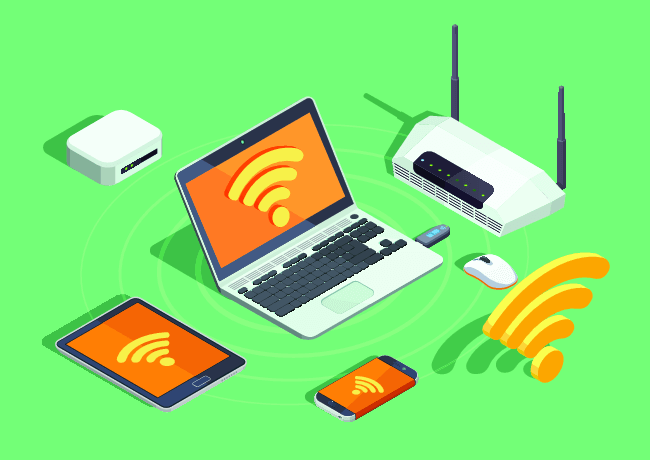Wireless
2 Resolutions for World Wi-Fi Day 2017

It’s World Wi-Fi Day! Really, given how much we work on Wi-Fi technology, every day is Wi-Fi Day at CableLabs. Since the rest of the world has decided to take note, it feels a bit like New Year’s. So, how about a couple of resolutions?
In the coming year, we in the Wi-Fi industry should resolve to support the continued growth of Wi-Fi with two major initiatives:
1) Enhanced Wireless Spectrum Access
Spectrum, or the airwaves that wireless communication travels over, is the key ingredient for Wi-Fi. While CableLabs and others in the industry work hard to improve Wi-Fi technologies, it is all for naught if we don’t have the wireless bandwidth to make it work. This is becoming more important as wireless use grows, putting pressure on the capacity we have today.
To stick with this resolution, we’ll need the help of regulators around the world that control access to spectrum. For example, the latest Wi-Fi technology 802.11ac is known as “gigabit Wi-Fi” for the high performance it offers. Unfortunately, due to lack of spectrum, the full potential of this technology can’t be realized.
To fix this, we must look at the 5 GHz frequency band. You probably have a router at home that is “dual band”, meaning it uses 5 GHz. If you acquired it in the last year or two, it is likely 802.11ac (“gigabit Wi-Fi”) capable. We need to open up more spectrum for Wi-Fi in the 5 GHz range to fully enable this technology. Particularly as wired broadband speeds continue to increase, we need to be sure that the final step to your wireless device isn’t a bottleneck.
Progress on enabling Wi-Fi access to additional spectrum requires technical acumen, to ensure that Wi-Fi can share the airwaves without causing harmful interference to other services. That’s where our team at CableLabs comes in.
In the US, the FCC is examining how Wi-Fi can share with transportation communications technology in the upper part of the 5 GHz band, an issue they have been looking at for over four years. We’ve studied this, and we believe spectrum sharing technology supports this proposal. It’s time to move forward so that consumers can realize the full benefits of gigabit Wi-Fi.
CableLabs has applied our expertise to questions of spectrum sharing before, with a lot of success. In 2014, we did the behind-the-scenes work to open up the lower part of the 5 GHz band for Wi-Fi in the US. And just last month, the Canadian government followed this precedent.
2) Enable Reliable Coexistence Between Wi-Fi and Other Technologies
Though most people may not think too much about 5 GHz spectrum, those who do, probably think of it as Wi-Fi spectrum. That’s understandable since there are literally billions of Wi-Fi devices out there. However, more accurately, it is unlicensed spectrum (or license-exempt, in Europe). Meaning, other technologies also use the same frequencies.
Unlicensed spectrum is becoming more popular, and new technologies are moving in. Those that have a similar usage pattern are likely to run into Wi-Fi. Therefore, these new technologies need to be designed to play nicely, just as Wi-Fi is designed to do with its listen-before-talk protocols. Coexistence between technologies in unlicensed spectrum is of paramount importance to ensure that consumers win from new wireless innovation.
The leading case in this area is, of course, LTE-U, which we’ve written about extensively. CableLabs worked diligently to surface problems with LTE-U coexistence technology and led industry-wide efforts in the Wi-Fi Alliance to develop tests that can verify how well LTE-U equipment shares spectrum with Wi-Fi before it hits the street. Industry collaboration is an effective means of addressing coexistence issues and mobile carriers have stated that they will stick with the results of that process. We have since seen LTE-U devices approved after going through the tests.
The LTE-U story is, for the most part, a good example of how industries can come together to protect consumers that rely on unlicensed spectrum. However, the level of collaboration seen since then has, unfortunately, diminished significantly. Specifically, there isn't visibility into how the industry-agreed coexistence tests are implemented and used. No LTE-U vendor has released the results of its coexistence tests, even though they are happy to tout that they have passed with flying colors. Transparency is important to validate coexistence performance and mobile carriers and vendors should be more forthcoming.
Beyond LTE-U, which is a proprietary and non-standard technology aimed at unlicensed spectrum, we have LAA-LTE, which is the global standard version developed at 3GPP. There’s more reason for optimism around LAA coexistence since it uses listen-before-talk etiquette similar to Wi-Fi. But, when it comes to validating that optimism through coexistence tests, the work at 3GPP has been sorely lacking.
Just a couple of weeks ago, a key 3GPP working group produced what it deems to be final coexistence testing guidance associated with LAA (To read more download here). This work product does little to reassure consumers that rely on unlicensed spectrum. The guidance recommends only limited testing, which will not come close to approximating real-world technology interactions. Additionally, mobile carriers and vendors may not follow even this limited guidance since it is completely optional under the 3GPP specification. It is important that we get coexistence right since new technologies are coming, MulteFire, eLAA, and 5G, that will also use unlicensed spectrum alongside Wi-Fi.
These are our two big World Wi-Fi Day resolutions. Help us celebrate World Wi-Fi Day by commenting yours below. Be sure to check out our blog posts "Solutions for Whole Home Wi-FI Coverage," Carrier Wi-FI is Now Certified Vantage" and "Multiple Access Point Architectures and Whole WI-Fi Home Coverage" to read more about how CableLabs is engaged in Wi-FI efforts and do our best to protect consumers, making new wireless innovations a win for everyone!



